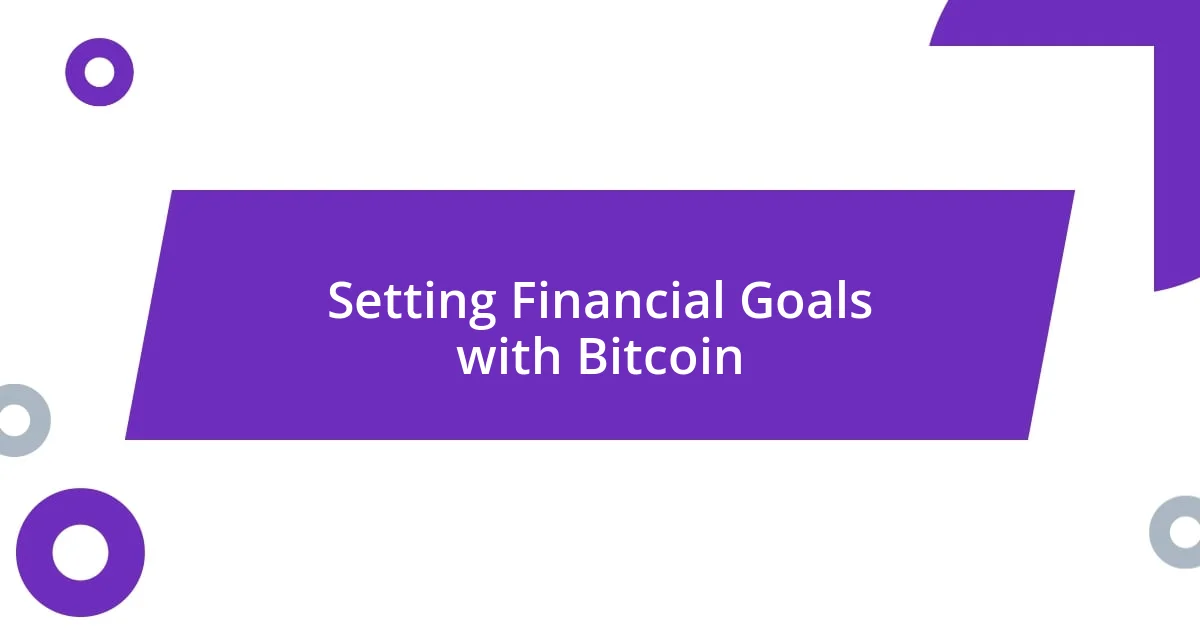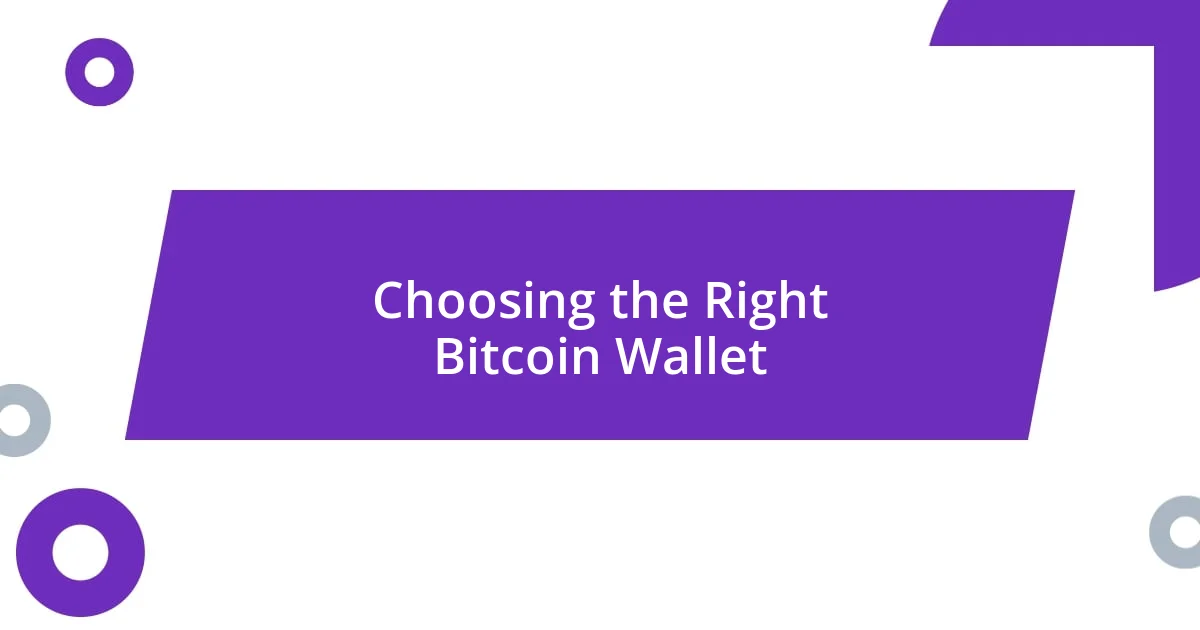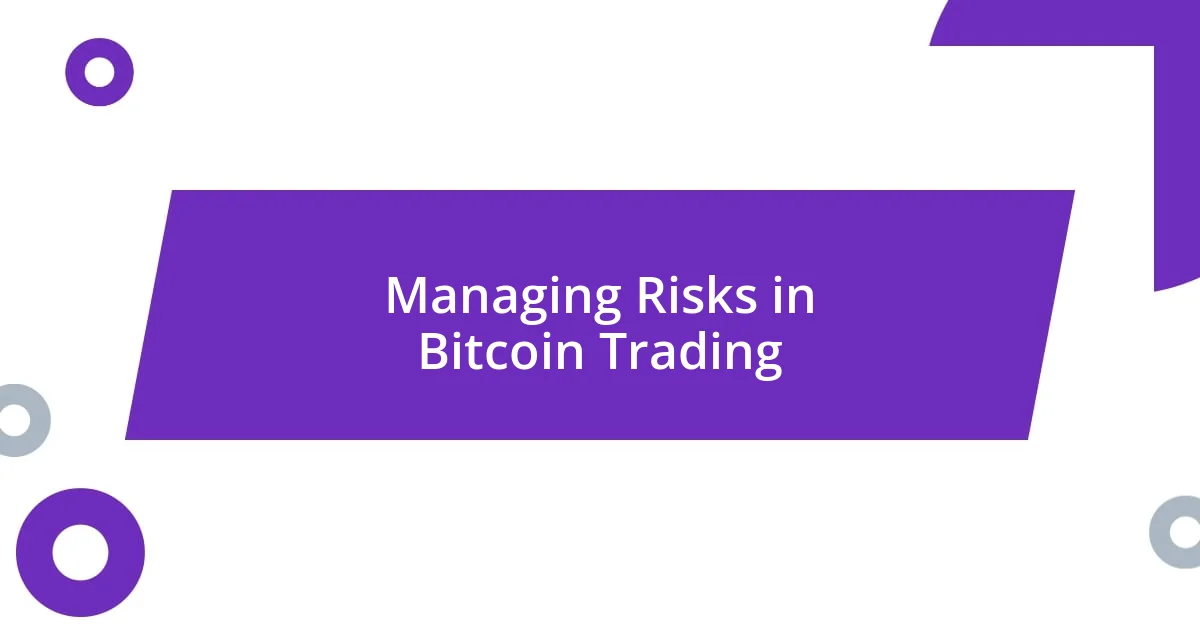Key takeaways:
- Bitcoin is a decentralized digital currency powered by blockchain technology, offering transparency and a limited supply of 21 million coins, likened to “digital gold.”
- Effective investment strategies include setting clear financial goals, employing dollar-cost averaging, diversifying investments, and staying informed on market trends.
- Understanding tax implications and maintaining detailed records of Bitcoin transactions are crucial to managing gains, losses, and potential capital gains taxes.

Understanding Bitcoin Basics
Bitcoin, at its core, is a form of digital currency that operates without the need for a central authority, like banks or governments. I remember the first time I heard about Bitcoin—it felt like a secret whisper among tech enthusiasts, almost like stumbling upon a hidden treasure. Have you ever felt that thrill when discovering something revolutionary?
One fascinating aspect of Bitcoin is its underlying technology, called blockchain. Imagine a secure, public ledger where every transaction is recorded and verified by a network of computers, creating a transparent and tamper-proof system. This innovation sparked my curiosity about how trust can be established in a decentralized manner—it’s a game-changer that really redefines our understanding of currency.
Lastly, Bitcoin is often touted as “digital gold.” As I began to invest, I found myself reflecting on the concept of scarcity; only 21 million Bitcoins will ever exist, much like precious metals. This limited supply sparked a sense of excitement in me, as I realized the potential for Bitcoin to appreciate in value over time. Isn’t it intriguing to think how something so intangible could hold such profound market value?

Setting Financial Goals with Bitcoin
When setting financial goals with Bitcoin, I always think about defining my objectives clearly. For me, it’s not just about how much I want to invest, but also what I hope to achieve. I remember my first goal was to accumulate enough Bitcoin to cover a future vacation. That tangible goal kept me motivated during market fluctuations, reminding me that every investment has a purpose.
It’s also crucial to consider the timeline for achieving these goals. I’ve found that shorter-term goals, like aiming for a specific investment return in a year, can be exhilarating but come with their own risks. On the other hand, setting longer-term goals has given me the patience to ride out the market’s ups and downs. I often ask myself, “What impact will holding Bitcoin have on my financial future in the next five or ten years?” This reflection helps me stay focused on sustainable growth.
Lastly, measuring progress can turn what feels like a daunting journey into a more manageable path. I have a habit of tracking my investments regularly, noting how any changes in Bitcoin’s price affect my overall plan. By celebrating small milestones, such as reaching a certain percentage of my investment goals, I keep my spirits up. Have you tried breaking down your goals into manageable steps? It truly makes the process feel less overwhelming and much more rewarding.
| Goal Type | Description |
|---|---|
| Short-Term Goals | Aim for quick returns, such as planning a vacation or paying off debt. |
| Long-Term Goals | Focus on substantial growth, like retirement savings or creating a wealth legacy. |

Choosing the Right Bitcoin Wallet
When it comes to choosing the right Bitcoin wallet, I can’t emphasize the importance of security enough. There’s nothing quite like the sinking feeling of realizing your digital assets are vulnerable. I vividly recall a friend who lost a significant amount of Bitcoin because they opted for a wallet that didn’t offer solid security features. That experience was a wake-up call for me and reinforced the need for a wallet that prioritizes safeguarding your investments.
Here are some key factors to consider when selecting your Bitcoin wallet:
- Security Features: Look for wallets with two-factor authentication and encryption; these can substantially reduce the risk of hacking.
- Control of Private Keys: Choose wallets that allow you to control your private keys, giving you full ownership of your Bitcoin.
- Reputation and Reviews: Research wallet providers and read user reviews. I always value the insights from other users to gauge reliability.
- User Experience: Opt for a wallet that fits your level of expertise, whether you’re a beginner or a seasoned investor. An intuitive interface can greatly enhance your experience.
- Backup Options: Make sure your wallet has backup features. I remember feeling relieved to find a wallet that easily allowed secure backups, reassuring me that my investments were safe even if something went wrong.
In my experience, a balance of security, control, and usability will significantly enhance your relationship with Bitcoin. You want to invest your time in understanding the wallet as much as the cryptocurrency itself. Have you ever felt the dread of losing something valuable? Choosing a wallet is much like locking away a treasure—you want that peace of mind.

Effective Strategies for Bitcoin Investment
When it comes to effective strategies for Bitcoin investment, I’ve found that dollar-cost averaging consistently works wonders. This means investing a fixed amount of money into Bitcoin at regular intervals, regardless of the price. I remember starting this strategy when Bitcoin was fluctuating widely; it took the stress off my investment decisions and lessened the impact of volatility over time. Have you ever felt overwhelmed by market timing? By spreading out my purchases, I felt far more secure in my approach.
Another tactic I often employ is diversifying my investments within the cryptocurrency space. While Bitcoin has been the star of my portfolio, I’ve discovered that adding smaller cryptocurrencies or tokens can help mitigate risks and enhance my overall returns. I once invested in a lesser-known altcoin out of curiosity, and it surprising doubled my initial investment. This experience reminded me that a diverse basket can lead to unexpected rewards. What have you explored beyond Bitcoin?
Lastly, I make it a point to stay informed about market trends and regulatory changes. Following news updates helps shape my investment decisions. One rewarding moment came when I learned about an upcoming regulation that could positively impact Bitcoin’s adoption. I decided to increase my holdings just before the news broke, and it led to significant gains. How often do you keep up with industry news? Staying proactive has been a game-changer for me.

Managing Risks in Bitcoin Trading
In trading Bitcoin, managing risks is essential, and one method I’ve found helpful is setting clear stop-loss orders. I recall a particularly volatile trading day when I ignored my own advice and saw my investment shrink rapidly. That experience taught me the hard way that having a predetermined exit strategy can save you from emotional decision-making. It’s like having a safety net—you invest, but also prepare for unexpected falls.
Additionally, I’ve learned the importance of not investing more than I can afford to lose. When I first dipped my toes into cryptocurrency, there was a trend to go all in, but I resisted the urge. Remembering my budget allowed me to approach Bitcoin without the fear of significant financial loss. Have you ever felt the pressure of needing to keep up with others? I’ve realized that betting what you can spare is not just smart; it gives you a clearer headspace to make rational choices in such a volatile market.
I also actively seek to educate myself about market trends and risks inherent in cryptocurrency. I typically take a few minutes daily to read news articles and join online discussions. Just the other week, I spotted a warning about a potential regulatory change that could impact prices. This awareness helped me adjust my strategy in advance rather than reacting in panic. How often do you pause to seek knowledge in trading? By staying informed, you arm yourself to battle the volatility rather than being swept away by it.

Tax Implications of Bitcoin Wealth
Understanding the tax implications of Bitcoin wealth is vital for anyone navigating this digital asset landscape. When I first started investing in Bitcoin, I was surprised to learn that any gains I made are subject to capital gains taxes. This means that when you sell or exchange your Bitcoin for a profit, you could owe taxes on that profit, and staying informed about current regulations is key. Have you ever thought about how your investments affect your tax situation?
I still remember the panic I felt during my first tax season with Bitcoin. I had to sift through records of every transaction to report my earnings accurately. It was quite a chore, but it made me realize the importance of maintaining detailed records. By keeping track of when I bought and sold my Bitcoin, I could determine my gains or losses and avoid any unpleasant surprises at tax time. Isn’t it comforting to know that some organization on your part can make that process smoother?
Additionally, I discovered that the tax treatment varies depending on whether you hold Bitcoin as a long-term investment or engage in short-term trading. Long-term holdings may qualify for lower capital gains tax rates, which is something I always keep in mind when managing my portfolio. For instance, planning to hold Bitcoin for at least a year before selling has been a strategic move for me. Have you considered the timing of your sales in relation to your tax obligation? It’s a game changer that could lead to significant savings down the road.














